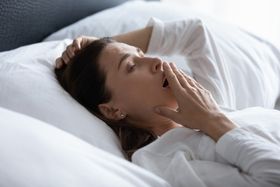CBD Answers - UK
We answer questions about the use of CBD products, CBD oils. their uses and benefits, and CBD legislation in the UK.
Recent Answers
Sharp Stabbing Pain in the Knee That Comes and Goes: Here’s the Cause
If you've ever experienced sharp stabbing knee pain, you know how unpleasant it can be. This type of pain can disrupt everyday activities, making it difficult to walk, stand, or even sit comfortably.
Asked 2 years ago
What Are the Different Stages of Sleep Deprivation?
Getting enough sleep is important for for both psychological and physical health. In fact, sleep deprivation is a commonly used torture and interrogation technique precisely because of how negatively
Asked 2 years ago
The Best Way to Sleep if You Have Tennis Elbow Pain
Tennis elbow is a musculoskeletal injury that causes pain in the outer part of the elbow. It occurs due to repetitive use of the forearm muscles and tendons that attach to the lateral epicondyle on th
Asked 2 years ago
Does Anxiety Make You Feel Tired?
Fatigue is a symptom of anxiety for many people. When you are anxious, you tend to overthink and worry excessively, which takes significant energy and can leave you feeling tired. In fact, anxiety can
Asked 2 years ago
What Are the Common Causes of Broken Sleep Every Night?
Broken sleep means that a person's sleep cycle is fragmented because they keep waking up during the night. While not as dangerous as chronic sleep deprivation, prolonged broken sleep can have many neg
Asked 2 years ago
Recent Posts
Joel Taylor
Lion’s Mane Mushroom Side Effects
KNOW FUNCTIONAL MUSHROOMS & CBD
Get informed about the latest news, research, product and more.
100% spam-free. We don't email often. Unsubscribe anytime.







